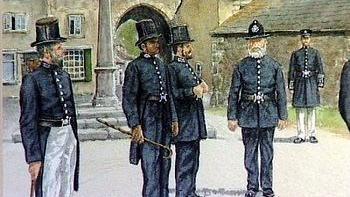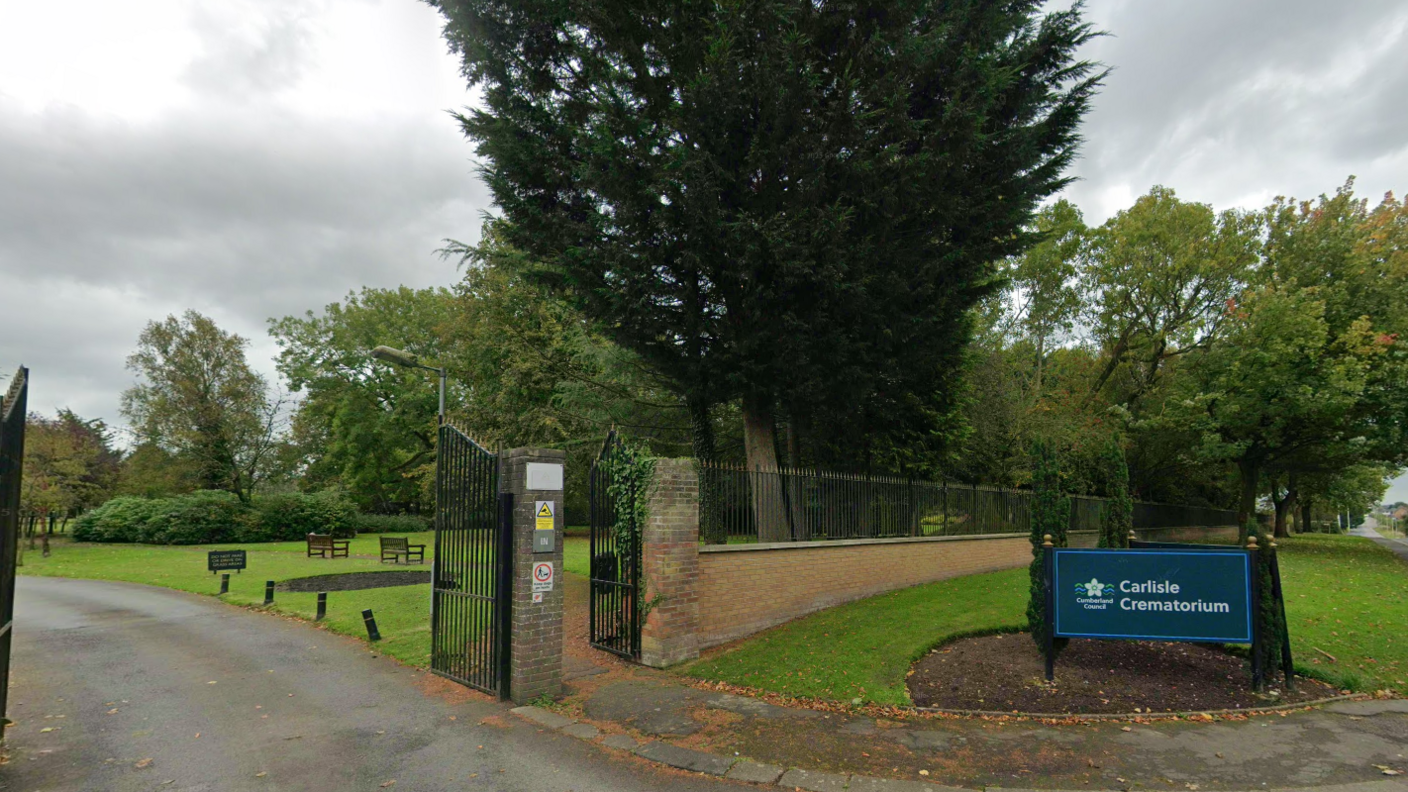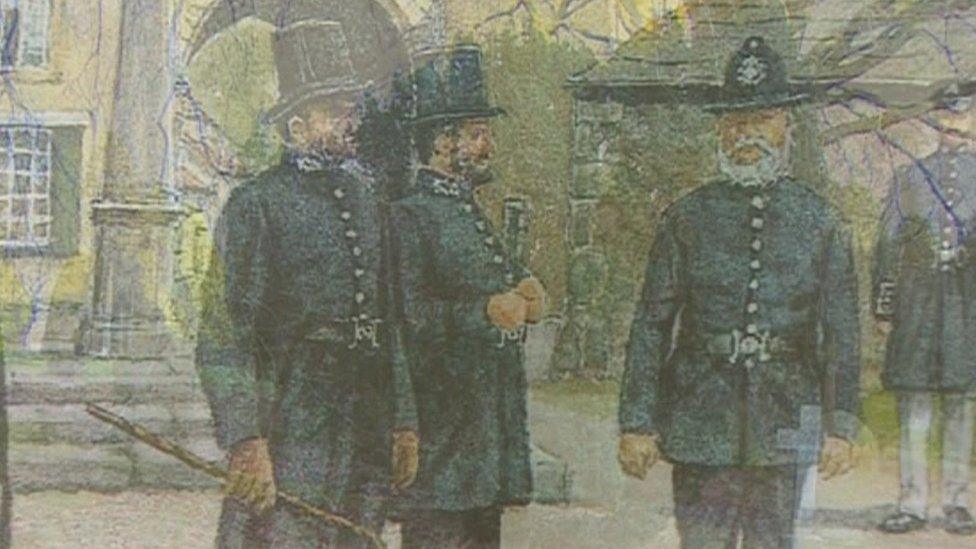Gravestone hopes for UK's first black policeman

John Kent is a symbol of belonging and possibility, the National Black Police Association said
- Published
School children hope to "shine a light" on their region's diverse past by commissioning a gravestone for Britain's first black policeman, John Kent.
Students at Grayrigg Church of England primary school in Cumbria are taking on a walking challenge to raise funds to mark the unmarked grave at Carlisle Crematorium.
Mr Kent was born in Cumbria in 1805 and began his duties as a police officer in Maryport in 1835 before joining Carlisle Police in 1837.
Labour MP for Carlisle, Julie Minns, has also applied to Historic England for a blue plaque in the city where he spent the majority of his career.
Mr Kent, who died in 1886, was the son of Thomas Kent, a slave who was brought to Whitehaven and freed in the UK.
Grayrigg students are walking 41 million steps collectively, or 17,000 miles (27,358km) to mark the route slaves were taken from Africa to the Caribbean and to Cumbria.
They have so far raised more than £1,000 and hope to commission local artist Lela Harris to create a portrait of Mr Kent for Carlisle train station.
Blue plaque
Retired Cumbria Police officer Raymond Greenhow, and former officer Bob Lowther, helped uncover Mr Kent's story and said his was a "legacy of bravery".
"He should be regarded as one of the early pioneers in the black community," he said.
"There should be something within the city that marks John's service and it's just sad really that there's no plaque in the city, nor is there a gravestone that marks his passing, and there should be."

John Kent's grave is known but unmarked
President of the National Black Police Association, Andy George, said Mr Kent's story showed that black presence and contribution was "woven deep into the fabric of British history".
"At a time when the call for representation and trust in policing has never been more urgent, figures like John Kent are more than historical footnotes, they are symbols of belonging and possibility," he said.
A plaque was erected in Maryport in 2019 and the Carlisle plaque suggestion was "under consideration", Historic England said.
The National Blue Plaque Scheme celebrates people who have made a significant contribution to human welfare or happiness, or who have made an exceptional impact in their field, community or wider society.
Minns said the community's response to the proposal had been "really positive".
"Honouring John Kent is not just about remembering the past," she said.
"It is about recognising the vital contributions of Black Britons and inspiring future generations to celebrate our nation's full history."
Follow BBC Cumbria on X, external, Facebook, external, Nextdoor and Instagram, external.
Get in touch
Do you have a story suggestion for BBC Cumbria?
Related topics
Related stories
- Published26 October 2019
